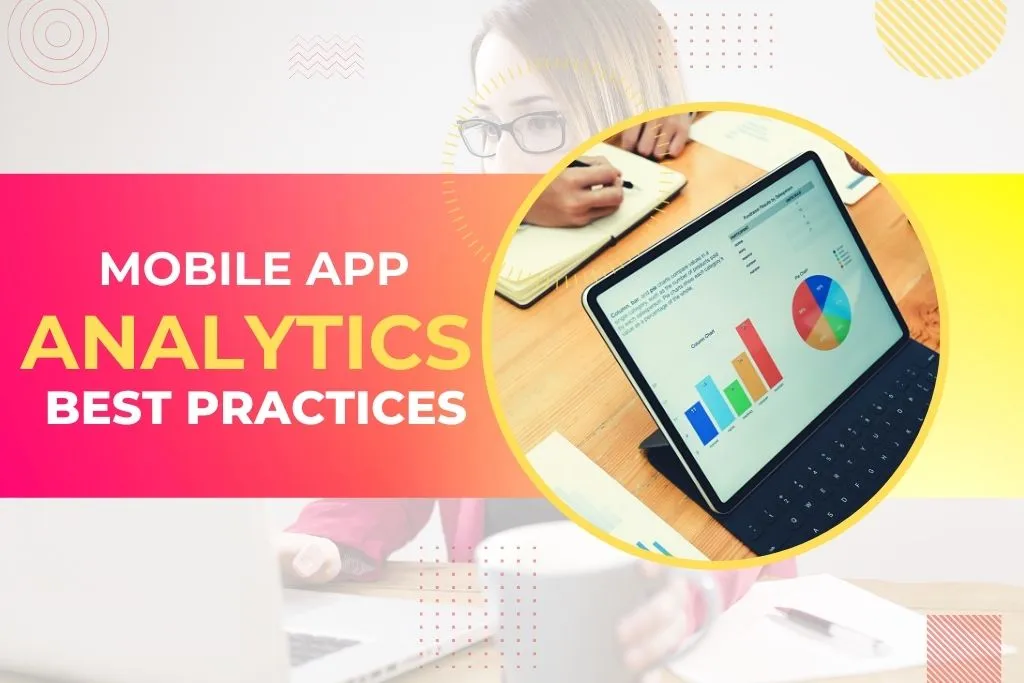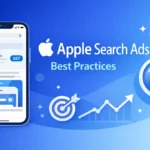Mobile App Analytics Best Practices: A Comprehensive Guide

In today’s digital landscape, where mobile applications dominate the market, understanding user behavior and app performance is paramount for success. Mobile app analytics serve as the cornerstone for making informed decisions, optimizing user experience, and maximizing app performance. In this comprehensive guide, we’ll delve into mobile app analytics best practices, exploring essential metrics, tools, and strategies to help you harness the power of data for your mobile applications.
Introduction to Mobile App Analytics
Mobile app analytics involves the collection, measurement, and analysis of user interactions within a mobile application. By tracking various metrics and data points, app developers and marketers can gain valuable insights into user behavior, app performance, and overall user experience. These insights are instrumental in driving user engagement, retention, and monetization.
Why Mobile App Analytics Matter
Mobile app analytics offer a myriad of benefits for app developers and businesses, including:
- Understanding User Behavior: Analytics provide insights into how users interact with your app, including session duration, screen views, navigation paths, and more.
- Improving User Experience: By identifying pain points and areas of improvement, developers can enhance the user experience, leading to higher retention rates and user satisfaction.
- Optimizing Marketing Efforts: Analytics helps measure the effectiveness of marketing campaigns, allowing businesses to allocate resources wisely and optimize their strategies for better results.
- Maximizing Revenue: Through in-depth analysis of user behavior, app analytics can identify monetization opportunities, such as optimizing in-app purchases or ad placements.
Mobile App Analytics Best Practices
1. Define Clear Objectives
Before diving into analytics, it’s essential to establish clear objectives and key performance indicators (KPIs) for your mobile app. Whether it’s increasing user engagement, boosting revenue, or improving retention rates, having defined goals will guide your analytic efforts.
2. Choose the Right Metrics
Selecting the most relevant metrics is crucial for gaining actionable insights. Some essential metrics to track include:
- User Acquisition: Measure the sources of app downloads, including organic, paid, and referral traffic.
- Retention Rate: Monitor how many users continue to use your app over time.
- Session Length: Analyze the average duration of user sessions within your app.
- Screen Flow: Track the sequence of screens users navigate through and identify drop-off points.
- Conversion Rate: Measure the percentage of users who complete a desired action, such as making a purchase or signing up for a subscription.
3. Utilize App Analytics Tools
Several analytics platforms offer robust tools for tracking and analyzing mobile app data. Some popular options include:
Google Analytics for Mobile Apps: Provides comprehensive insights into user behavior, acquisition channels, and in-app conversions.
Firebase Analytics: Offers real-time analytics, audience segmentation, and event tracking for mobile apps.
Apple App Store Connect: Enables developers to monitor app performance metrics, ratings, and reviews for iOS apps.
4. Implement Event Tracking
Event tracking allows you to monitor specific user interactions within your app, such as button clicks, form submissions, or in-app purchases. By defining and tracking custom events, you can gain deeper insights into user behavior and engagement.
5. Analyze User Feedback
In addition to quantitative data, qualitative feedback from users is invaluable for understanding their needs and preferences. Encourage users to provide feedback through in-app surveys, reviews, or feedback forms. Analyzing this feedback can uncover insights and opportunities for improvement.
6. Monitor App Performance
Beyond user behavior, it’s essential to monitor the technical performance of your app, including app crashes, load times, and errors. Tools like Firebase Performance Monitoring and Crashlytics can help identify and resolve performance issues quickly.
7. Iterate and Optimize Continuously
Mobile app analytics is an iterative process. Continuously monitor your app metrics, identify areas for improvement, and implement optimizations based on data-driven insights. Regularly A/B test new features, UI/UX changes, and marketing strategies to iterate and refine your app over time.
Final Thoughts
Mobile app analytics play a pivotal role in the success of mobile applications, empowering developers and businesses to make data-driven decisions, optimize user experience, and maximize app performance. By following best practices, including defining objectives, choosing the right metrics, leveraging analytics tools, and iterating continuously, you can unlock the full potential of your mobile app and drive sustainable growth in the competitive app market. Embrace the power of mobile app analytics to stay ahead of the curve and deliver exceptional experiences for your users.
In conclusion, mastering mobile app analytics best practices requires a comprehensive understanding of user behavior, strategic use of analytics tools, and a commitment to continuous optimization. By implementing these best practices and harnessing the power of data-driven insights, app developers and businesses can unlock the full potential of their mobile applications and drive sustainable growth in today’s competitive app market.
Mobile app analytics involve the collection, measurement, and analysis of user interactions within a mobile application to gain insights into user behavior and app performance.
Mobile app analytics are essential for understanding user behavior, optimizing user experience, and maximizing app performance, ultimately leading to increased user engagement and revenue.
Essential metrics to track include user acquisition, retention rate, session length, screen flow, conversion rate, and more, depending on your specific objectives and KPIs.
Popular analytics tools for mobile apps include Google Analytics for Mobile Apps, Firebase Analytics, and Apple App Store Connect, each offering unique features for tracking and analyzing app data.
Analyze user feedback, monitor app performance, and iterate continuously based on data-driven insights to enhance user experience, drive engagement, and maximize app performance.




